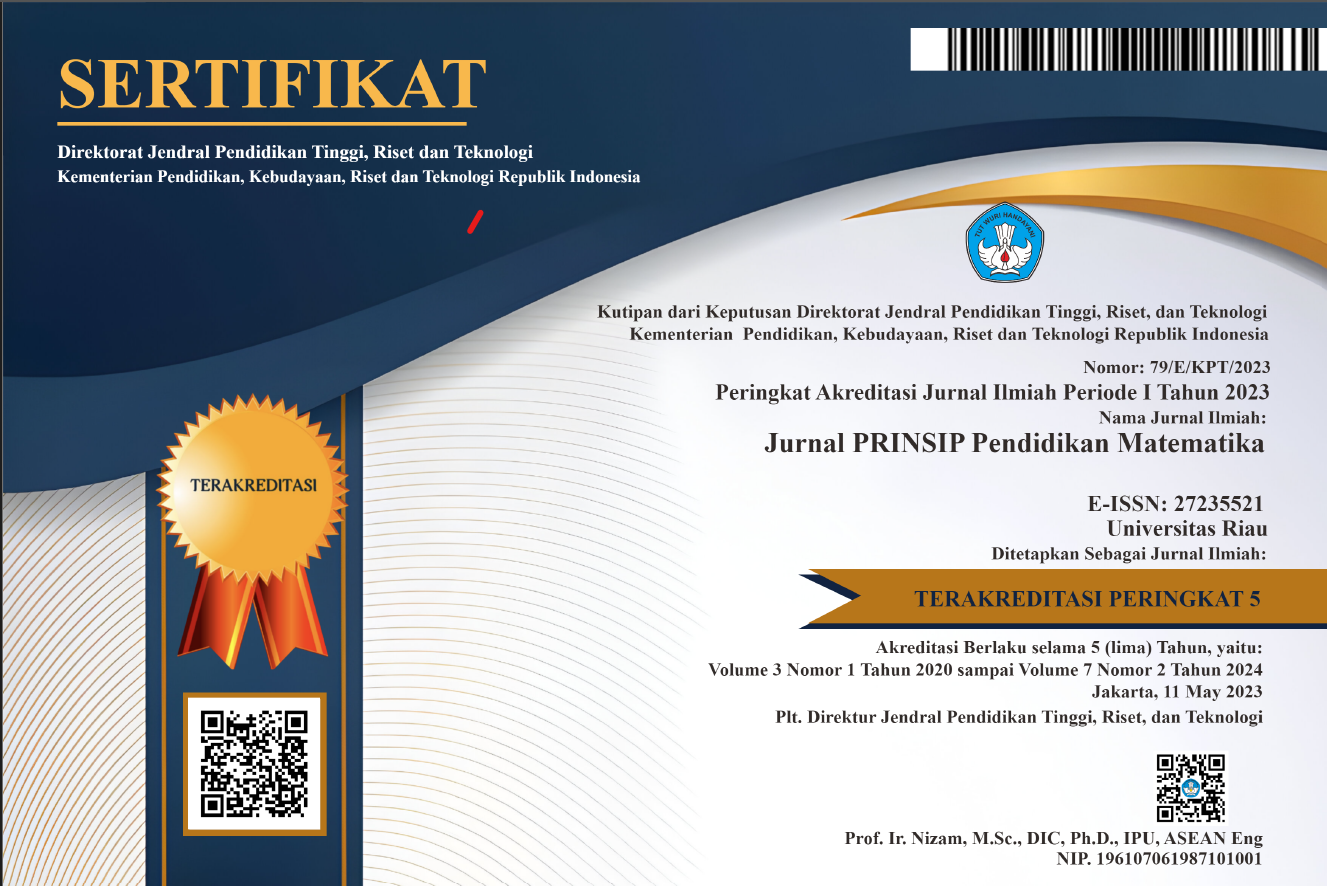DEVELOPMENT OF MATHEMATICS LEARNING INSTRUMENT USING PROBLEM BASED LEARNING MODEL ON THE SUBJECT SEQUENCE AND SERIES FOR SENIOR HIGH SCHOOL GRADE XI
Abstract
This research was done due to the problem found by teachers’ difficulty in developing learning instruments based on the 2013 curriculum. In connection with this, efforts are needed to assist teachers in providing learning instruments that are in accordance with the demands of the 2013 curriculum. The learning instrument form of Syllabus, Learning Implementation Plan (RPP), and Student Worksheets (LKPD). This research aimed to develop mathematics learning instruments. Related to learning management on the 2013 curriculum, one of the recommended learning models is Problem Based Learning (PBL) model. On this basis, the researcher conducted the development of learning instruments by using PBL models on the material sequence and series of class XI SMA/MA by using the 4-D development model. This research instrument used was the Syllabus, RPP, and LKPD sheets to assess the validity of the learning instrument. The results of validation data analysis obtained an average value of the syllabus is 3,76 with a very valid category, RPP is 3,78 with a very valid category and LKPD is 3,75 with a very valid category. Therefore, it can be concluded that the Syllabus, RPP, and LKPD developed are suitable to use for trials in the learning process.
Downloads
References
Akbar, S. (2013). Instrumen perangkat pembelajaran. Remaja Rosdakarya
Arikunto, S. (2012). Prosedur penelitian. Rineka Cipta
Daryanto & Dwicahyono, A. (2014). Pengembangan perangkat pembelajaran (Silabus, RPP, PHB, bahan ajar). Gaya Media
Fariana, M. (2017). Implementasi Model Problem Based Learning untuk meningkatkan pemahaman konsep dan aktivitas siswa. Journal of Medives: Journal of Mathematics Education IKIP Veteran Semarang, 1(1), 25-33
Fatmasuci, F. W. (2017). Pengembangan perangkat pembelajaran berbasis masalah berorientasi pada kemampuan komunikasi dan prestasi belajar matematika siswa SMP. Jurnal Riset Pendidikan Matematika, 4(1), 32-42. https://doi.org/10.21831/jrpm.v4i1.11325
Kemendikbud. (2014). Salinan Lampiran Permendikbud Nomor 59 Tahun 2014 tentang Kurikulum 2013 Sekolah Menengah Atas/Madrasah Aliyah. Kemendikbud
Kemendikbud. (2016). Salinan Lampiran Permendikbud Nomor 22 Tahun 2016 tentang Standar Proses Pendidikan Dasar dan Menengah. Kemendikbud
Prastowo, A. (2014). Pengembangan bahan ajar tematik. Kencana Prenada Media Group
Ramadhani, R. (2016). Pengembangan Perangkat pembelajaran matematika yang berorientasi pada model Problem Based Learning. Kreano, Jurnal Matematika Kreatif-Inovatif, 7(2), 116-122. https://doi.org/10.15294/kreano.v7i2.7300
Salirawati, D. (2012). Penyusunan dan kegunaan LKS dalam proses pembelajaran. http://staffnew.uny.ac.id/upload/132001805/pengabdian/19penyusunnan-dan-kegunaan-lks.pdf. [Diakses pada 10 Juni 2020]
Sudijono, A. (2011). Pengantar statistik pendidikan. Rajawali Press
Trianto. (2010). Mendesain model pembelajaran inovatif progresif, konsep, landasan, dan implementasinya pada Kurikulum Tingkat Satuan Pendidikan (KTSP). Kencana.
Trianto. (2017). Mendesain model pembelajaran inovatif, progresif dan kontekstual konsep, landasan dan implementasinya pada Kurikulum 2013. Kencana
Copyright (c) 2020 Jurnal Prinsip Pendidikan Matematika

This work is licensed under a Creative Commons Attribution-NonCommercial-ShareAlike 4.0 International License.





